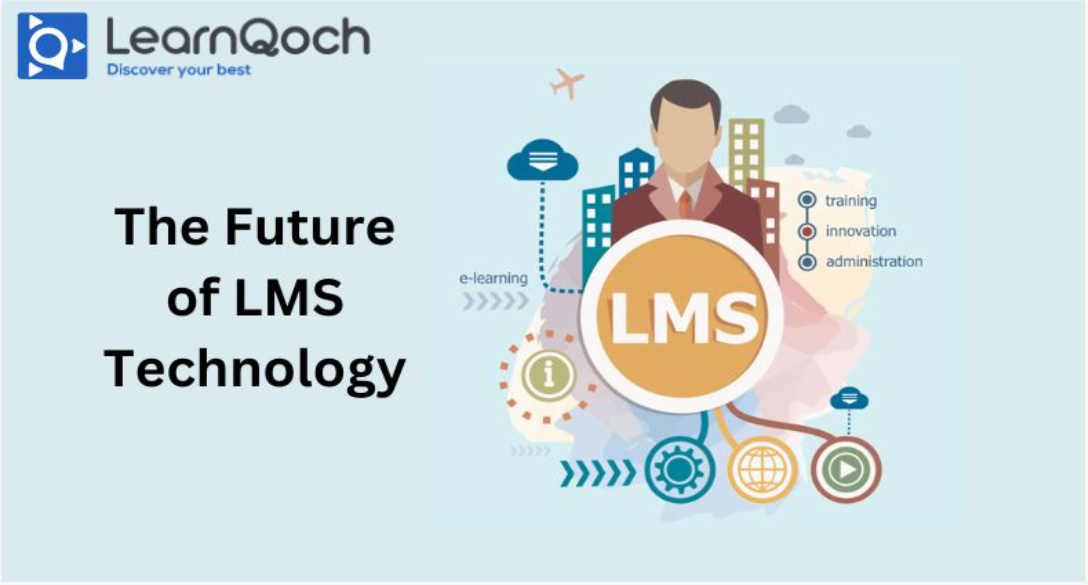The Future of LMS Technology
Learning Management System (LMS) technology has evolved significantly over the years, transforming the way education and training are delivered. As technology continues to advance, LMS platforms are witnessing emerging trends and innovations that enhance the learning experience for students and professionals alike.
The traditional one-size-fits-all approach to education is gradually being replaced by personalised learning experiences. LMS technology plays a crucial role in facilitating this shift, with AI-driven personalization and virtual reality integration at the forefront of innovation. Let’s explore the emerging trends in LMS technology and their potential to revolutionise the learning landscape.
I. AI-driven Personalization in LMS Technology
- Adaptive Learning Paths:
AI-driven personalization in LMS technology enables adaptive learning paths for individual learners. By analysing vast amounts of data related to learners’ preferences, performance, and behaviour, AI algorithms can tailor the learning experience to suit each student’s unique needs. Adaptive learning paths help students progress through the material at their own pace, LearnQoch ensures they receive appropriate content and resources to address their specific knowledge gaps. As learners interact with the system, AI continuously updates the learning path, offering relevant challenges and activities to optimise knowledge retention and mastery.
- Smart Content Recommendations:
AI algorithms in LMS platforms can leverage data from learners’ past interactions to provide smart content recommendations. By understanding learners’ interests and preferred learning styles, the system can suggest engaging and relevant learning materials, such as articles, videos, simulations, or interactive modules. Smart content recommendations enhance learners’ engagement, motivation, and overall learning experience, as they receive personalised content that aligns with their individual preferences.
- Real-time Feedback and Assessment:
AI-driven personalization enables real-time feedback and assessment in LMS platforms. Instead of waiting for instructors to manually grade assignments or quizzes, AI can provide instant feedback to learners. This immediate feedback loop empowers learners to identify areas of improvement, address misconceptions promptly, and take corrective actions. LearnQoch’s assessments can adapt to learners’ performance levels, challenging them with appropriate difficulty levels and adjusting the difficulty based on their progress.
- Predictive Analytics:
The integration of AI-driven predictive analytics in LMS technology allows for the anticipation of learners’ performance and potential learning challenges. By analysing historical data and behaviour patterns, AI can predict learners’ outcomes, such as completion rates, performance on specific topics, or likelihood of dropping out.
These insights provided by LearnQoch enable instructors and administrators to proactively intervene and provide additional support to learners who may be at risk of falling behind.
II. Virtual Reality Integration in LMS Technology
- Immersive Simulations:
Virtual Reality (VR) integration in LMS platforms offers a groundbreaking opportunity for immersive learning experiences. Learners can engage in realistic simulations that replicate real-world scenarios and tasks. For instance, medical students can practise complex surgical procedures, engineers can experiment with designs in virtual environments, and emergency responders can simulate cries. Immersive simulations not only enhance learners’ understanding of theoretical concepts but also provide valuable hands-on experience in a risk-free and controlled setting.
- Experiential Learning:
VR integration facilitates experiential learning, a pedagogical approach that emphasises learning by doing. Learners can explore various interactive and dynamic VR environments that require active problem-solving and decision-making. This experiential learning approach fosters critical thinking, creativity, and adaptability, as learners must navigate through challenges and consequences within the virtual context.
- Collaborative Learning:
Virtual reality opens up possibilities for collaborative learning in LMS platforms. Learners from different geographic locations can gather in a shared virtual space, allowing for seamless interaction and collaboration despite physical distances. Collaborative VR experiences encourage group discussions, teamwork, and peer-to-peer knowledge sharing, enhancing the social and interactive aspects of the learning process.
- Soft Skills Training:
VR integration is particularly valuable for soft skills training. Learners can participate in realistic scenarios that require interpersonal communication, emotional intelligence, and conflict resolution. Through interactive role-playing in virtual environments, learners can practise and refine their soft skills in a safe and supportive setting.
III. The Future Impact of AI-driven Personalization and VR Integration
- Enhanced Learning Outcomes:
The integration of AI-driven personalization and VR in LMS technology is expected to lead to improved learning outcomes. Personalised learning paths catered to individual needs can boost engagement, motivation, and knowledge retention. LearnQoch enhances learners’ understanding and practical skills through experiential learning.
- Increased Accessibility and Inclusivity:
AI-driven personalization allows LMS platforms to adapt content and resources to accommodate learners with diverse needs and learning styles. Virtual reality integration enhances accessibility by offering inclusive experiences that cater to different preferences and abilities. For instance, learners with visual impairments can benefit from auditory and tactile cues in VR environments.
- Data-Driven Insights:
AI-driven personalization generates valuable data insights about learners’ performance, preferences, and behaviour. These data-driven insights can help educators and institutions make informed decisions about instructional design, curriculum improvements, and resource allocation, leading to more effective and targeted learning experiences.
AI-driven feedback systems, like LearnQoch’s LMS, can provide learners with immediate and helpful feedback, assisting them in understanding their errors and pointing them in the direction of progress.
- Lifelong Learning and Continuous Training:
The combination of AI-driven personalization and VR integration opens up opportunities for lifelong learning and continuous professional development. Learners can engage in personalised learning journeys, upskilling and reskilling as per their evolving needs and career aspirations.
Conclusion
The emerging trends and innovations in LMS technology, such as AI-driven personalization and virtual reality integration, hold the promise of transforming education and training in profound ways.
By offering adaptive and personalized learning experiences and immersive training environments, LearnQoch is equipped with these technologies that can empower learners, boost their engagement, and enhance overall learning outcomes.
As these advancements continue to evolve, the future of LMS technology looks increasingly promising, catering to the diverse needs of learners and unlocking new possibilities in education and professional development.
Choose LearnQoch to enhance the quality assurance standards of your institution.
Call us at +91 84519 01079 or email at info@learnqoch.com

